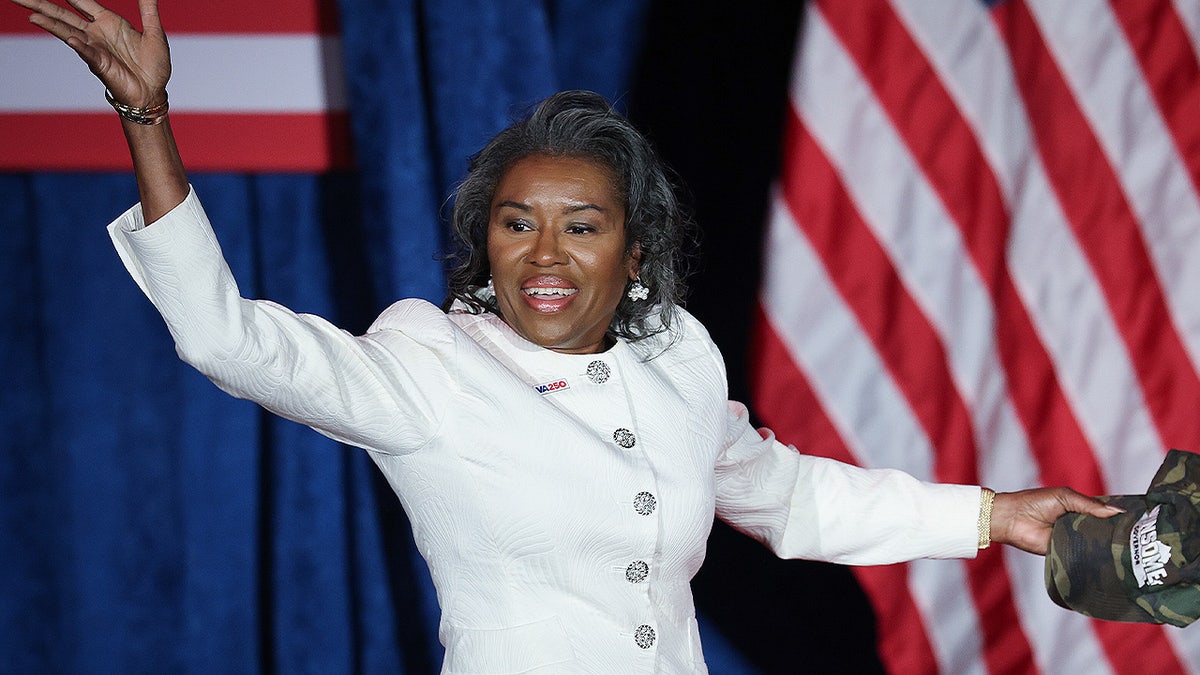Report on Allegations of Discriminatory Practices at Great White Restaurant Chain
Executive Summary
This report examines allegations of discriminatory business practices leveled against the Great White restaurant chain. The incidents, which originated from social media, suggest practices that are in direct conflict with several United Nations Sustainable Development Goals (SDGs), particularly those concerning equality, decent work, and just institutions. The report outlines the allegations, analyzes their implications for sustainable development, and details the subsequent responses from the company and the public.
Incident Overview and Allegations
A series of allegations concerning discriminatory practices, primarily racial segregation of customers, has emerged against the Great White restaurant chain, owned by Sam Trude and Sam Cooper.
Initial Social Media Allegations
- On September 29, diner Cassidy Cho posted a video on Instagram from the Great White Melrose location, alleging that Asian customers were intentionally seated together in a specific section of the restaurant’s patio.
- On October 2, content creator Ed Choi amplified these claims in a video that garnered over one million views, referencing prior Yelp reviews with similar allegations of segregating Asian diners.
Escalation and Further Testimony
Following the initial videos, numerous other claims surfaced from both customers and employees, expanding the scope of the allegations.
- Customer Testimony: Additional customers shared experiences of alleged race-based seating segregation at various Great White locations and the formerly associated Gran Blanco restaurant.
- Employee Testimony: Current and former employees provided conflicting accounts. Some alleged that discrimination was part of management culture.
- Former Gran Blanco employee Sarah Brier alleged she was directed to seat Asian guests outside and that the environment was “racist and sexist.”
- Another former employee, Montana Pine, alleged that management instructed staff to turn away “certain demographics” by claiming the restaurant was at capacity.
- Conversely, other employees refuted the claims, stating the culture was not discriminatory and that the seating section in question was highly requested by all patrons.
Alignment with Sustainable Development Goals (SDGs)
The alleged practices at Great White directly challenge the principles of several key SDGs, undermining progress toward a more equitable and just society.
SDG 10: Reduced Inequalities
The core allegations of racially segregated seating are a direct violation of SDG 10, which aims to reduce inequality within and among countries.
- Target 10.2: This target calls for the social, economic, and political inclusion of all, irrespective of race, ethnicity, or other status. Segregating customers based on their ethnicity fundamentally opposes this principle of universal social inclusion.
- Target 10.3: This target seeks to ensure equal opportunity and eliminate discriminatory practices. The alleged management policies represent a systemic practice that creates inequality of outcome and experience for patrons.
SDG 8: Decent Work and Economic Growth
Testimonies from former employees suggest a work environment that conflicts with the principles of decent work as outlined in SDG 8.
- Target 8.8: This target aims to protect labor rights and promote safe and secure working environments. A workplace where employees are allegedly instructed to carry out discriminatory practices and where sexist behavior is reported fails to provide a psychologically safe or ethical environment.
SDG 16: Peace, Justice, and Strong Institutions
This goal emphasizes the need for inclusive and accountable institutions. As a public-facing business, a restaurant is a community institution that has a responsibility to operate inclusively.
- Target 16.b: The promotion and enforcement of non-discriminatory laws and policies for sustainable development is central to this goal. The allegations suggest a failure at the institutional level to uphold non-discriminatory principles, thereby weakening social cohesion.
SDG 5: Gender Equality
Secondary allegations from a former employee regarding a “sexist” environment and inappropriate behavior by male employees also touch upon SDG 5, which seeks to end all forms of discrimination against women and girls.
Institutional Response and Aftermath
Company’s Position
The owners of Great White have categorically denied the allegations.
- Co-owner Sam Trude stated that any notion of mistreating customers or seating them based on ethnicity is “absolutely outrageous and completely false.”
- The company has not issued further statements but has limited comments on its social media profiles.
Public and Legal Ramifications
The public response has been significant, leading to several consequences for the business and individuals involved.
- Social Media Backlash: The restaurant chain faced widespread criticism online, with numerous videos and comments condemning the alleged practices.
- Platform Intervention: Yelp has temporarily disabled the ability to post reviews for all Great White locations to prevent platform misuse.
- Harassment and Safety Concerns: The restaurant owners and current staff members have reportedly received threatening messages, with some employees expressing fear about coming to work.
- Potential Legal Action: Social media posts have encouraged individuals who believe they experienced discrimination to come forward for a potential lawsuit.
Conclusion
The allegations against the Great White restaurant chain highlight a significant disconnect between business practices and the global agenda for sustainable development. The claims of racial and gender discrimination directly contravene the core principles of SDG 10 (Reduced Inequalities), SDG 8 (Decent Work), SDG 16 (Peace, Justice, and Strong Institutions), and SDG 5 (Gender Equality). This case serves as a critical reminder that achieving sustainable development requires a commitment from all institutions, including private businesses, to uphold principles of equality, justice, and inclusivity in all their operations.
Analysis of SDGs, Targets, and Indicators
1. Which SDGs are addressed or connected to the issues highlighted in the article?
The article highlights issues of alleged racial discrimination and segregation in a business establishment, which directly connects to several Sustainable Development Goals (SDGs) focused on equality, justice, and fair labor practices.
-
SDG 10: Reduced Inequalities
This is the most prominent SDG related to the article. The core allegation is that the restaurant, Great White, intentionally seated customers based on their race, specifically segregating Asian diners. This practice, if true, is a clear example of creating and reinforcing social inequality, which SDG 10 aims to eliminate.
-
SDG 16: Peace, Justice and Strong Institutions
This goal is relevant because it seeks to promote inclusive societies and provide access to justice for all. The alleged discriminatory practices undermine the principle of an inclusive society. Furthermore, the article mentions a call for customers who experienced discrimination to share their stories for a “potential lawsuit,” which directly relates to seeking justice and holding institutions (in this case, a private business) accountable for their actions.
-
SDG 8: Decent Work and Economic Growth
The article includes testimony from current and former employees, bringing SDG 8 into focus. Allegations from a former employee, Sarah Brier, describe a “racist and sexist” work environment where she was instructed by management to discriminate against customers. Another employee mentioned being called the “token black hire.” These claims point to a failure to provide a decent, safe, and non-discriminatory working environment, which is a key component of SDG 8.
2. What specific targets under those SDGs can be identified based on the article’s content?
Based on the specific issues discussed, several targets under the identified SDGs are applicable.
-
SDG 10: Reduced Inequalities
- Target 10.2: “By 2030, empower and promote the social, economic and political inclusion of all, irrespective of age, sex, disability, race, ethnicity, origin, religion or economic or other status.” The article’s central theme of segregating Asian customers is a direct violation of this target’s call for social inclusion irrespective of race or ethnicity.
- Target 10.3: “Ensure equal opportunity and reduce inequalities of outcome, including by eliminating discriminatory laws, policies and practices…” The allegations that the discrimination was part of “management policy” and that staff were instructed to “limit the amount of ethnic looking people” point to discriminatory practices that this target aims to eliminate.
-
SDG 16: Peace, Justice and Strong Institutions
- Target 16.b: “Promote and enforce non-discriminatory laws and policies for sustainable development.” The entire controversy revolves around the alleged violation of non-discriminatory principles in a public space. The social media backlash, media reports, and the potential for a lawsuit are all informal and formal mechanisms to enforce these non-discriminatory norms and laws.
-
SDG 8: Decent Work and Economic Growth
- Target 8.8: “Protect labour rights and promote safe and secure working environments for all workers…” The testimony from former employee Sarah Brier about a “racist and sexist” environment and being instructed to carry out discriminatory tasks directly relates to the failure to provide a safe and secure working environment. The psychological and ethical burden of such a workplace is a violation of labor rights.
3. Are there any indicators mentioned or implied in the article that can be used to measure progress towards the identified targets?
The article does not mention official SDG indicators, but it provides several examples of qualitative and quantitative data points that can serve as implied indicators for measuring progress or lack thereof.
-
Indicators for SDG 10 (Reduced Inequalities)
- Personal testimonies and reports of discrimination: The video posted by diner Cassidy Cho, the amplification by Ed Choi, prior Yelp reviews alleging segregation, and messages from other customers sharing similar experiences all serve as qualitative indicators of perceived discrimination based on ethnicity (Target 10.2, 10.3).
- Existence of discriminatory business policies: The allegation from staff that “discrimination was part of management policy” is a direct indicator of a systemic practice that creates inequality (Target 10.3).
-
Indicators for SDG 16 (Peace, Justice and Strong Institutions)
- Public reporting of discrimination: The use of social media platforms like Instagram, TikTok, and Yelp to report and discuss the alleged discrimination serves as an indicator of public awareness and reporting on non-inclusive practices (Target 16.b).
- Legal recourse for discrimination: The mention of a “potential lawsuit” and the call for affected individuals to share their experiences for this purpose is an indicator of efforts to seek justice and enforce non-discriminatory policies through legal channels (Target 16.b).
-
Indicators for SDG 8 (Decent Work and Economic Growth)
- Employee reports of a hostile work environment: The detailed allegations from former employee Sarah Brier about a “racist and sexist” environment, being instructed to discriminate, and a co-worker’s “token black hire” joke are clear indicators of an unsafe and non-inclusive workplace (Target 8.8).
- Formal complaints by employees: The article mentions Brier’s correspondence with a manager and a human resources company, where she formally alleged a “racist and sexist” environment. These formal complaints are a key indicator of workplace issues (Target 8.8).
4. Summary Table of SDGs, Targets, and Indicators
| SDGs | Targets | Indicators Identified in the Article |
|---|---|---|
| SDG 10: Reduced Inequalities |
10.2: Promote social inclusion of all, irrespective of race, ethnicity, etc.
10.3: Ensure equal opportunity and eliminate discriminatory policies and practices. |
|
| SDG 16: Peace, Justice and Strong Institutions | 16.b: Promote and enforce non-discriminatory laws and policies. |
|
| SDG 8: Decent Work and Economic Growth | 8.8: Protect labour rights and promote safe and secure working environments for all workers. |
|
Source: la.eater.com







